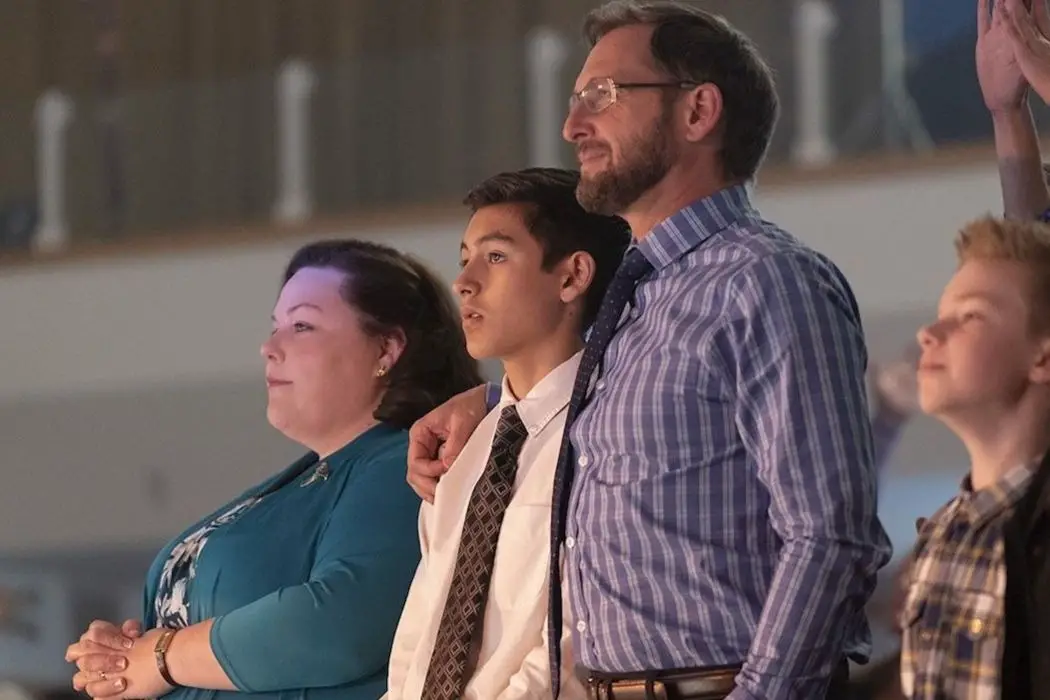BREAKTHROUGH: A Patronising, Manipulative Faith-Based Drama

Faith-based films, especially those of the God’s Not Dead variety, can often be a big ask for audiences, religious or otherwise. For every Silence, which investigates one’s dedication to their faith, or First Reformed, which asks the viewer to consider to place and responsibility of the church in modern times, there are about a hundred movies pumped into cinemas that push simplistic, often toxic messages. Films that wag their fingers at a society which has allegedly “strayed from the path” and offer swift judgment about anyone who dares to doubt or criticize the church.
Enter Breakthrough, a film that may not take such an Old Testament stance on non-believers, but still shows how troubling the conveyor belt of mainstream Christian propaganda films really is. Screenwriter Grant Nieporte, working from a book by the real-life Joyce Smith, dedicates rather a lot of his script to taking aim at the medical industry.
Not the corporations that deny healthcare to millions of people, no, the problem, according to this film, is that doctors, for the most part, are uncaring, cynical jerks who need to be lectured about the power of prayer before they can even begin to actually do their jobs. Breakthrough may operate under the guise of showing how collective faith and prayer can have a positive effect, but just under the surface is something much more concerning. Something which represents a movement of corporate Christian cinema that’s more interested in spreading paranoia than exploring faith.
So What’s It All About?
To take a step back, the story follows John Smith (Marcel Ruiz), the adopted son of Joyce (Chrissy Metz) and Brian (Josh Lucas). John’s birthday is a particularly difficult time of year, causing him to lash out at his parents and fall behind in his school work. He’s constantly told he has a purpose—by his mother and by his basketball coach—but doesn’t always know how to live up to that. One day, while playing on a frozen lake with his two friends, tragedy strikes, as the ice breaks beneath the three boys, causing John to plummet down into the water.
He’s rescued by fireman Tommy Shine (Mike Coulter), in what appears to be some sort of divine intervention, but his struggles are far from over. He’s taken into the hospital without a pulse, but a plea to God from Joyce is not so gently suggested to be the cause of his returning heartbeat. As previously mentioned, Joyce clashes with John’s doctors, whom she believes aren’t fully committed to saving her son, and even her own husband. Things seem increasingly hopeless for John—who’s now slipped into a coma—but with his school friends rallying around him, Joyce’s belief that God will save her son grows stronger and stronger.

Breakthrough is directed by Star Trek: Voyager cast member turned prolific television director Roxann Dawson, and while the film does have a flat visual palette that feels more in line with a TV special, Dawson at least gets to demonstrate some directorial flare here and there. The growing divide between Joyce and Brian is shown efficiently through the blocking of the actors, while the pivotal scene of John falling into the ice is appropriately suffocating, allowing the viewer to experience the panic of drowning along with him.
Dawson does, unfortunately, also lean on well-worn cliches—the opening shot shows John gracefully falling beneath the water in a Christ-like pose, in case you had any delusions about what kind of movie you were watching, and it ends with photos of the real people involved, because of course it does. It’s a mixed bag visually, but any attempt to lend any credibility to proceedings is undermined at every turn by Nieporte‘s ghastly screenplay.
We’ve all seen movies and shows where the writer has clearly struggled to capture how teenagers talk, but Breakthrough‘s grating dialogue comes off as the work of somebody who’s never actually met a fourteen-year-old, only heard about them second-hand. Scene after scene of the younger cast interacting is an excruciating endurance test for the ears, which is, to be clear, no fault of their own.
Worse still, are Joyce’s brushes with the doctors working to keep John alive. Nieporte frequently paints the medical staff as downright cruel, making glib remarks about the boy’s condition when they don’t think the family is listening and being all but ready to give up on him before being berated by Joyce.
It’s clear why this is done—because the power of prayer has to triumph over modern medicine—but the extent to which scene after scene shows doctors to be incompetent comes off as mean-spirited, to say the least. And it all being in service of such a simple, on-brand message of “prayer is important, non-belief should be squashed” is about as engrossing as, well, watching somebody in a coma for 45 minutes.
Instead of truly investigating the nature of faith, we’re just made to accept that enough of it can lead to the type of miracles seen in the film, while a lack of it is just an inevitable stepping stone to belief. I’m not even asking for a full deconstruction of religious belief, just anything more dramatically stimulating than what we get here.
But How Are The Performances?
Metz does her best with this material, but even she can’t stop Joyce from being an insufferable presence in the film, always chewing somebody’s ear off for not responding correctly to the situation and calling out everyone in sight for not doing their jobs properly. Meanwhile, Lucas has next to nothing to work from as husband Brian, a character whose sole purpose appears to be reacting to Joyce’s various outbursts. There’s an attempt at least to interrogate Joyce’s actions, but the film barely makes time for this before doubling down on the idea that she was actually right all along.

Topher Grace also shows up as Jason, Smith’s pastor and living embodiment of the “how do you do, fellow kids?” meme. He takes it upon himself to be by John’s side at every opportunity, when he has time between booking hip Christian rock bands to perform at the church, that is. An early scene shows congregation turning up their noses and clutching their pearls at a laughably vanilla live performance by some such band, who Jason believes are necessary in getting young people interested in the church.
While I don’t doubt that this character type will be familiar to Breakthrough‘s target audience, the performance behind it can’t seem to decide between sincere and intentionally cringe-worthy. If the film wasn’t such blatant propaganda, you’d almost be forgiven for thinking Grace was trying to lampoon this type of cloying character, in a similar way he did to David Duke in last year’s BlacKkKlansman.
Breakthrough: Misguided Choices
Worst of all is Breakthrough‘s shockingly judgemental view of parents who give children up for adoption, and the white savior complex that comes along with it. John is of Guatemalan descent and all we know of his birth parents is that they “abandoned” him.
While you can hardly blame a kid for seeing it that way, the fact that the film doesn’t even try to dig any deeper into what those circumstances might have been sets a concerning precedent, especially since, on top of that, Joyce is also revealed to have offered up her first child for adoption. This is presented as a heinous act that she must atone for, leading to her overprotectiveness of John.
It’s not unbelievable that this would weigh on her, but the lack of understanding for the difficulties parents go through (not to mention the numerous justifiable reasons one might have for giving their child up) presents a thoroughly judgemental viewpoint on an issue deserving of considerably more nuance. And the fact that this is all wrapped up in the tidy package of a white savior narrative makes for some extremely bad optics all around.
Unless you’re specifically in the market for something that reinforces the cliches of many mainstream Christian films, it’s a hard pass. This brand of lazy, simple-minded propaganda is long past its sell-by date, and Breakthrough does next to nothing to break out of that cycle.
Breakthrough is out in the US now and hits UK cinemas on Friday, May 17th.
Have you seen Breakthrough, and if so, what did you think? And what’s your favorite exploration of faith on film?
Does content like this matter to you?
Become a Member and support film journalism. Unlock access to all of Film Inquiry`s great articles. Join a community of like-minded readers who are passionate about cinema - get access to our private members Network, give back to independent filmmakers, and more.










